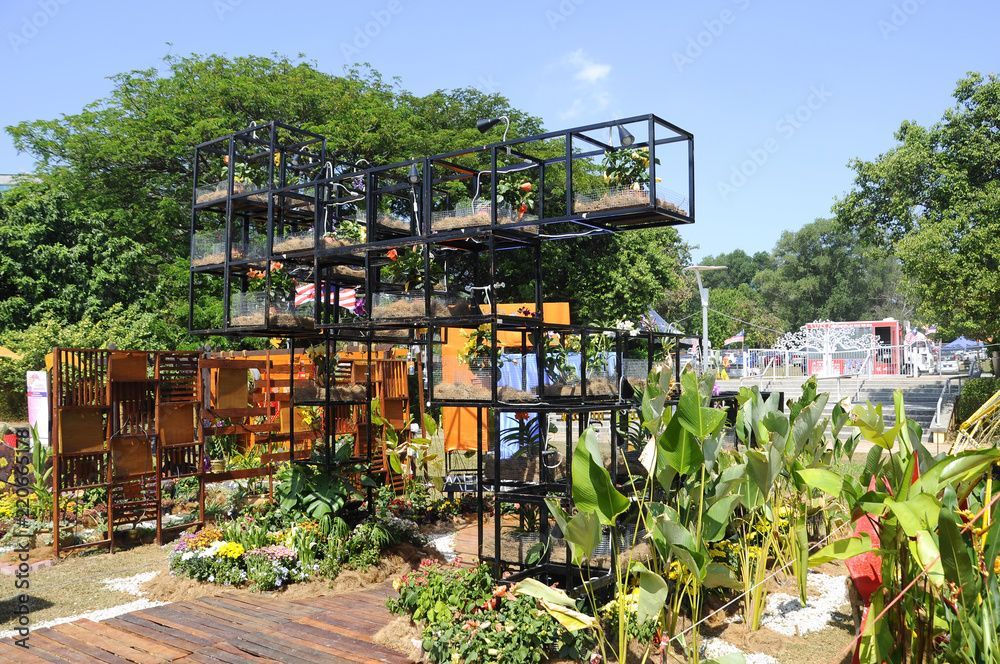Container Gardening Tips for Connecticut Balconies and Patios
Learn More About Your Microclimate

Connecticut, with its picturesque landscapes and changing seasons, provides a unique canvas for gardening enthusiasts. For those residing in urban areas or compact living spaces, balconies and patios offer the perfect opportunity to bring the beauty of nature closer to home through container gardening. In this comprehensive guide, we will explore creative and practical container gardening tips tailored for Connecticut's climate, helping residents transform their limited outdoor spaces into lush, vibrant havens.
Connecticut features diverse microclimates influenced by its coastal proximity, elevation changes, and regional weather patterns. Before embarking on your container gardening journey, take note of your specific microclimate. Coastal areas may experience milder winters, while inland regions may face colder temperatures. Understanding your microclimate will guide plant selection and care practices.
Choose the Right Containers
Selecting the right containers is crucial for successful container gardening. Ensure that your chosen containers have drainage holes to prevent waterlogged soil. Consider the material of the containers – lightweight materials like fiberglass or resin are ideal for balconies, where weight may be a concern. Additionally, larger containers provide more soil volume, offering better insulation for plant roots against temperature fluctuations.
Optimal Potting Mix
Choosing a high-quality potting mix is essential for container gardening success. Connecticut's varied climate demands a mix that provides good drainage, aeration, and water retention. You can customize your potting mix by adding organic matter like compost to enhance fertility. Consider using a mix formulated for container gardening, and refresh the soil annually to ensure optimal nutrient levels.
Sun Exposure Matters
Evaluate the sun exposure your balcony or patio receives throughout the day. Connecticut's climate offers a balance between sunny and shady periods, so choose plants that match the light conditions of your space. Full-sun plants like tomatoes and peppers thrive in areas with at least six hours of direct sunlight, while shade-loving plants like ferns or begonias can flourish in partially shaded spots.
Selecting Plants for Connecticut Containers
Connecticut's climate supports a wide variety of plants, but not all are suited for container gardening. Choose plants that not only suit your microclimate but also fit the size and style of your containers. Some excellent choices for Connecticut container gardens include:
Annual flowers like petunias, marigolds, and zinnias.
Herbs such as basil, rosemary, and thyme.
Compact vegetables like cherry tomatoes, peppers, and dwarf varieties of beans.
Perennials like hostas, heucheras, and sedums.
Small shrubs or ornamental grasses for added structure.
Consider Seasonal Interest
Plan your container garden for year-round appeal by selecting plants that offer seasonal interest. Choose a mix of spring-blooming flowers, summer foliage, fall colors, and even winter-interest plants like evergreens or ornamental grasses. This ensures that your balcony or patio remains visually appealing in every season.
Watering Wisdom
Container gardens require consistent watering, especially during hot Connecticut summers. However, it's crucial to strike a balance and avoid waterlogged soil. Check soil moisture regularly by sticking your finger into the soil – if it feels dry an inch below the surface, it's time to water. Use a saucer beneath containers to catch excess water, preventing potential damage to balcony surfaces.
Mulching for Moisture Retention
Applying a layer of mulch on the soil surface helps retain moisture, regulate soil temperature, and suppress weeds. Organic mulches like straw or bark also contribute to soil fertility as they break down. In Connecticut's climate, where summers can be warm and winters cold, mulching provides a protective layer for plant roots against temperature extremes.
Feeding Your Container Plants
Container plants rely on the nutrients present in their potting mix, which can deplete over time. Supplementing with a balanced liquid fertilizer or slow-release granules ensures that your plants receive essential nutrients for healthy growth. Follow recommended feeding schedules and adjust based on plant responses to avoid over-fertilization.
Protecting Against Frost
Connecticut experiences frosty winters, and even in coastal areas, temperatures can drop significantly. Protect your container plants by moving sensitive plants indoors or into a sheltered location during frost warnings. Consider wrapping containers with insulating materials or using frost cloths to shield plants from cold winds.
Vertical Gardening Solutions
Maximize limited space on balconies and patios by incorporating vertical gardening solutions. Wall-mounted planters, hanging baskets, or trellises with climbing plants not only add visual interest but also make efficient use of vertical space. This is particularly beneficial for small balconies where floor space is limited.
Regular Pruning and Deadheading
Regular maintenance, including pruning and deadheading, is essential for container gardens. Removing spent flowers and trimming back leggy growth promotes continuous blooming and maintains the overall health of the plants. Pruning also helps control the size of larger plants in confined spaces.
Pest Management
Container gardens are not immune to pests, and Connecticut's climate can attract a variety of insects. Keep a close eye on your plants for signs of pests, such as discolored leaves or unusual damage. Use organic insecticidal soaps or neem oil for gentle pest control, and inspect plants regularly to catch issues early.
Creative Container Arrangements
Elevate the aesthetics of your balcony or patio with creative container arrangements. Experiment with color schemes, textures, and varying plant heights to create visually appealing compositions. Consider incorporating decorative containers or repurposing unique items as plant containers for added charm.
Container gardening on Connecticut balconies and patios allows residents to create personalized oases amidst the beautiful landscapes of the state. By understanding the local microclimate, selecting suitable plants, and implementing practical care strategies, you can transform your limited outdoor space into a thriving and visually appealing container garden. Embrace the joys of gardening in Connecticut, where each season brings new opportunities to experiment with colors, textures, and plant varieties. Whether you're a seasoned gardener or a novice with a green thumb, container gardening offers a delightful way to connect with nature and infuse your outdoor space with natural beauty.
Contact Us
We will get back to you as soon as possible
Please try again later

Website Managed by
Leads By Vinny